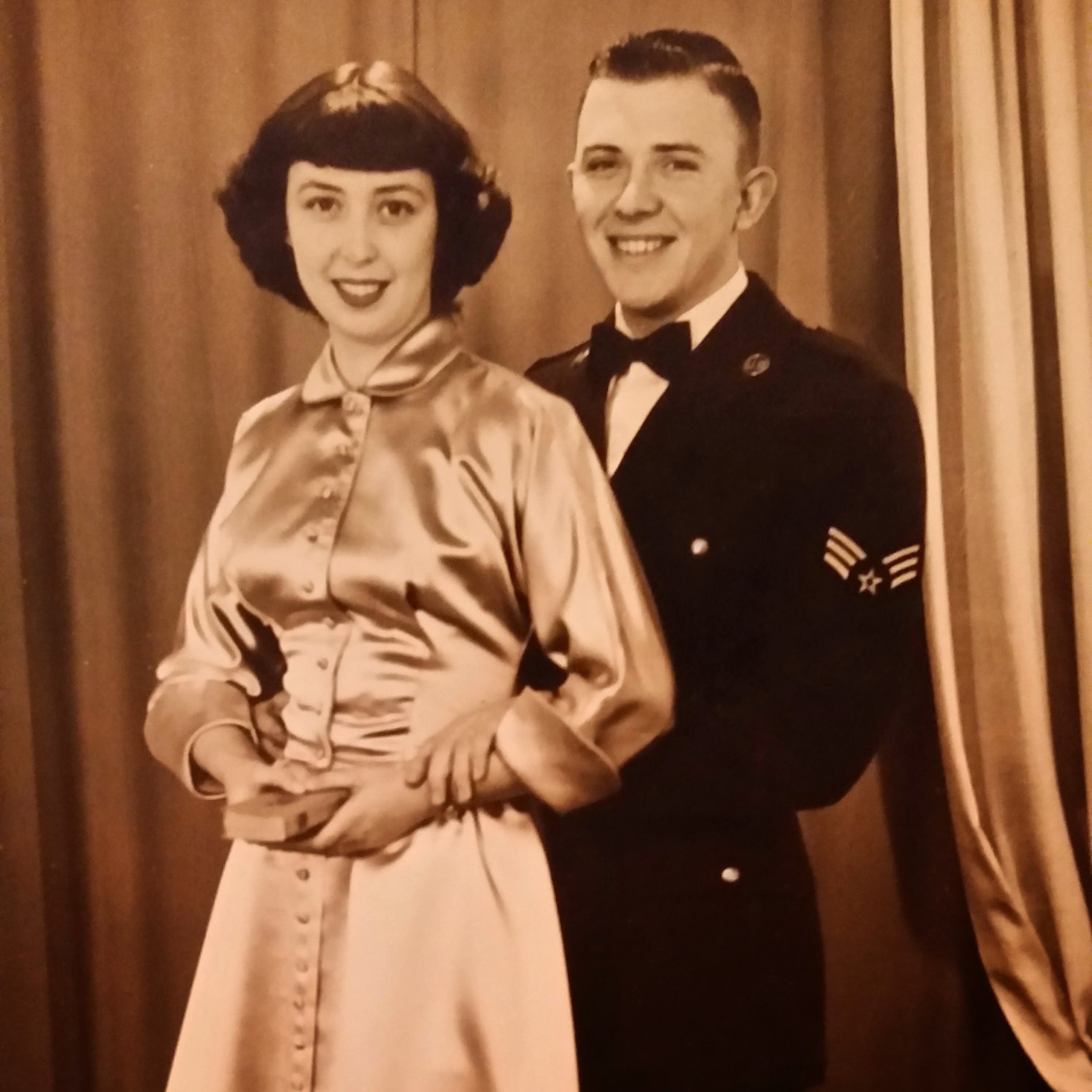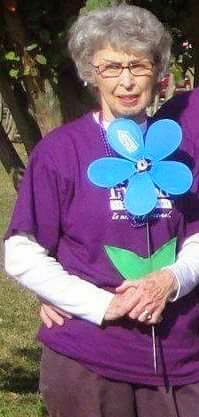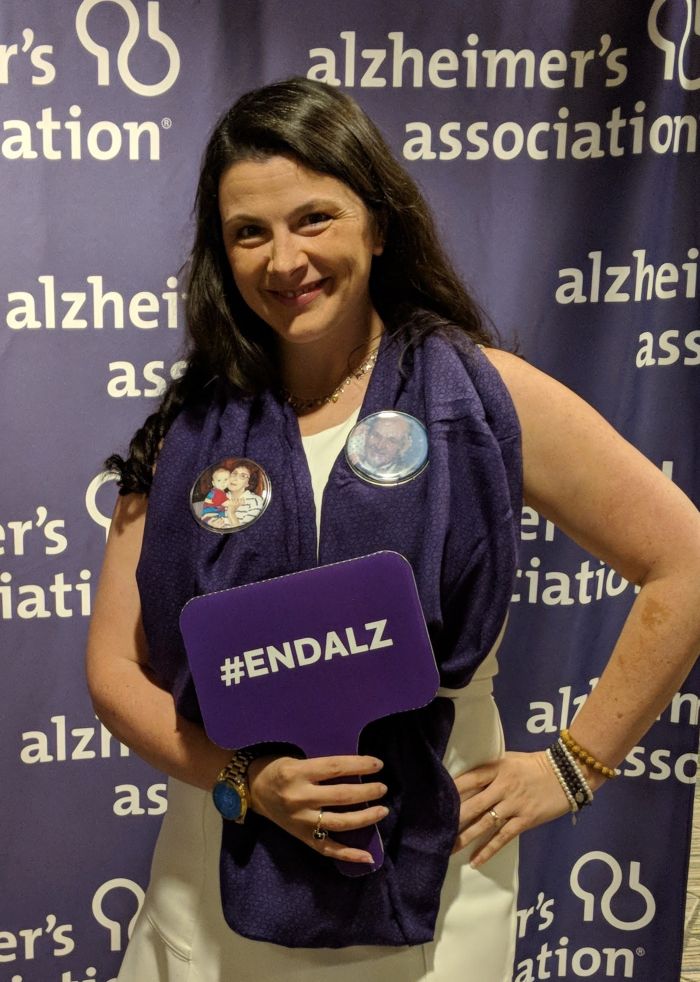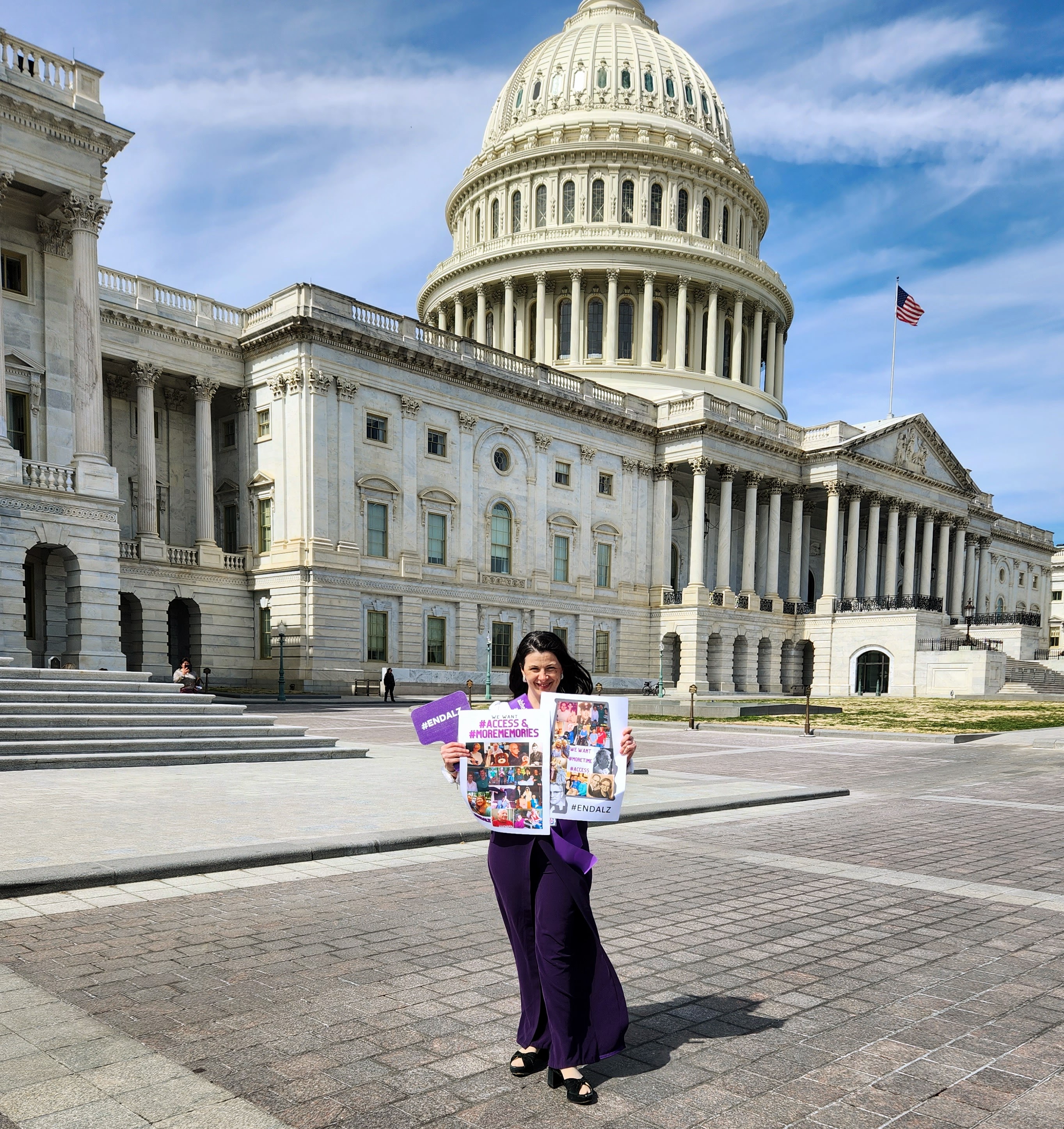Each month, we’re featuring an advocate who engages with policymakers to ensure priorities that improve the lives of people impacted by Alzheimer’s and all other dementia remain top-of-mind in Congress.
For well over a decade, Stephanie Buffaloe of Birmingham, Alabama has been involved in the fight to end Alzheimer’s and all other dementia. She first encountered Alzheimer’s as a young child when her grandfather, Clyde Miller, lived with the disease for 10 years. Later when her beloved mother-in-law, Doris Buffaloe, faced Alzheimer’s, she realized she needed to take action.
“I started my journey with the Alzheimer’s Association with my mother-in-law, who was a mom to me,” said Stephanie. “She was so amazing. I loved her, and I thought I would have a lot of time with her.”

Although Stephanie is no longer married to Doris’s son, she will always consider Doris and father-in-law Joe Buffaloe as her parents. “I wouldn’t be the person I am without them,” said Stephanie. “I will always be a Buffaloe because she made such an impact in my life. When I was going through my first doctorate, my in-laws were the people who really helped me and pushed me. There’s many times where I felt like I needed to quit. They made me who I am today. To have that person taken from my life was devastating.”
Following the loss of Doris, and her father-in-law only a year later, Stephanie got more involved with the Alzheimer’s Association. “I didn’t know how to deal with that grief, with not having her in my life. But I wanted to make a difference,” said Stephanie. “It was special, because when I started [volunteering] with the Alzheimer’s Association it was with her, and now I fight for her.”

For a few years, Stephanie served as a Walk to End Alzheimer’s Chair in her community. Then after some initial hesitation, Stephanie started shifting her focus more toward advocacy. “At first I was like, ‘I’m not a lobbyist. I don’t want to deal with politics,’” said Stephanie. “But now when someone asks who I’m voting for, I put on a purple heart. This is one of the only issues that’s not red or blue, it’s bipartisan. Because when we work together, that’s when things happen.”

Nearly 15 years ago, Stephanie attended her first AIM Advocacy Forum in Washington, D.C., the same year AIM was created and advocates were urging Congress to pass the National Alzheimer’s Project Act (NAPA) (P.L. 111-375), landmark legislation that has fundamentally changed the way our nation addresses Alzheimer’s and other dementia.
“When I first went to D.C., AIM said ‘We’re going to create a plan. And we’re going to have a treatment by 2025.’ And I just laughed and thought that was an auspicious, amazing goal,” said Stephanie. “We haven’t done that in the last hundred years…But what if? What if we can make that happen? And the fact that [we now have multiple treatments] and now we’re talking about finding a cure, that all came from creating AIM and getting to this critical level where you have hundreds of people coming to D.C. each year. To see that and to know that you get to be a part of it, how can you not want to sign up for AIM?”
Stephanie doesn’t limit herself to advocating only during the AIM Advocacy Forum, but seizes any opportunity that presents itself. She not only meets with members of Congress as a direct result of her involvement with AIM, but on multiple occasions, she has seen her senator or representative on a plane and used the time to urge them to support Alzheimer’s policy priorities. “There are times that I [plan to meet them with AIM]. And then there’s the times that I’m given by the grace of God,” said Stephanie. “I was on a plane with Rep. Robert Aderholt (AL-04) not very long ago, and he said ‘So what do y’all have coming up? What do I need to look at?’ And I said, ‘Funny you should mention it.’ and [went on to tell him about our priorities].”
For the last several years, Stephanie has taken the next step in her advocacy journey by joining the AIM Leadership Society.
“I could quickly see the changes being made in a way that I couldn’t have imagined. AIM Leadership Society took that to even a greater level. When we’re having breakfast or lunch with an elected official, it is with those key players who are making that change happen,” said Stephanie. “It’s not money wasted. I think for every dollar that I’ve ever given, I’ve been given back tenfold by what they’re doing.”
Ever since she joined, Stephanie has been the only Leadership Society member in Alabama. She wants to see other Alabamans join her and ensure that the Leadership Society has members from every state. “I don’t want Alabama to be last on the lists. I think that if we could have someone from every state, it’s so much better,” said Stephanie. “To have more people in AIM, to have more people in Leadership Society, means we have more voices being heard, more members of Congress making change happen. Then we get to a world without Alzheimer’s faster.”
“With me having that familial gene, all that we’ve learned in the last decade is huge,” said Stephanie. “We started this trajectory so we could tell people affected by Alzheimer’s: There is hope. There is treatment. There are things you can do now [to reduce risk].”
Stephanie is passionate about advancing the cause in her community and state. “In the South, I think that we have a challenge of changing a mindset and changing a trajectory of loved ones leaving us sooner than we would like. We get an opportunity by getting involved in advocacy, by being a part of Leadership Society, and going to our members of Congress and saying ‘We have to make a difference, and you have to help us.’”
Each year, Stephanie also enjoys attending state advocacy day to push state policy priorities forward in Alabama, meeting with as many state legislators as she possibly can. “It’s fun. Each year they always give me about three people to talk to, and I say ‘You can do better. If I’m going to be in Alabama’s State Capitol, you better keep me busy all day,’” said Stephanie. “I want to see bills pass. I’ve gotten spoiled.”
Beyond her advocacy, Stephanie has also stayed busy pursuing and prioritizing her education. She has earned three doctorate degrees and teaches strategic marketing and strategic management part-time as a college professor. “When I say I appreciate the strategic position that AIM and the Leadership Society has taken, I don’t say that lightly,” said Stephanie.
“To see the things that have been accomplished in a very short period of time, that says a lot about the leadership,” said Stephanie. “It’s easy to stand behind them because you can see the change that they’ve made…And I’m so grateful to get to be a part of the club that’s making that difference.”
Last year, Stephanie attended the Walk to End Alzheimer’s in Tuscaloosa and talked about the white flower, which symbolizes hope for a future world without Alzheimer’s and all other dementia. “I said ‘When I first started this Walk, I walked with a person who I loved. I wish that she had a treatment or a cure so I could keep her. But that wasn’t my luck. But to be able to say, ten years later, that we have treatments and there is hope — when I started this, there was no hope,’” said Stephanie.
“Doris was taken from me way too soon. She was the greatest mom,” said Stephanie. “I can fight so that other people don’t have to lose a mom or grandfather.”
“For my child’s sake, for my sake, and for the people I can’t bring back, I’m an advocate,” said Stephanie. “I know that I can help. I know that we can make a difference.”
Learn more about how to become an AIM Advocate or join the AIM Leadership Society.
